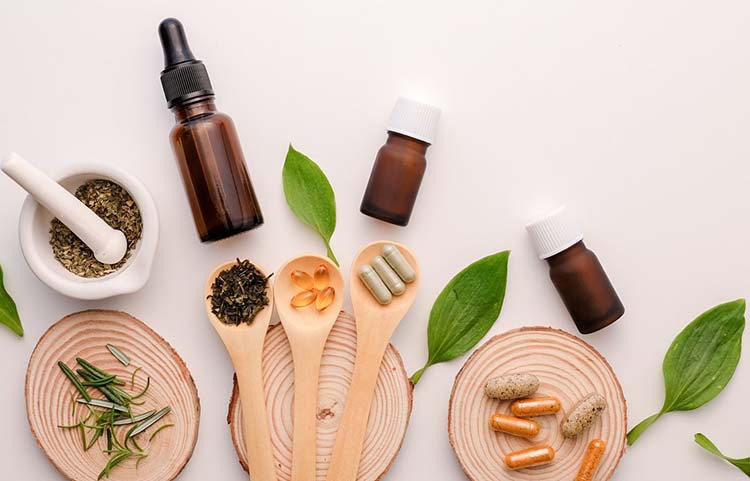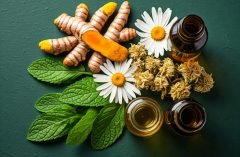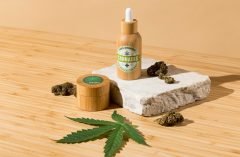Table of Contents
Debunking 6 common myths about CBD is easy work. In fact, choosing the 6 most common ones was the hardest part of putting this piece together. CBD or cannabidiol is an oil extracted from the hemp plant. From capsules to gummies and from tinctures to lotions and creams, CBD has found its way into nearly every industry in the past few years. You can buy CBD products at the beauty counter and the gas station.
Why? Research indicates that CBD can be used for a variety of ailments like anxiety, depression, sleep disorders and even migraines. However, despite its reputation as a helpful supplement, there are many myths about CBD, likely because of its relationship with marijuana. In this article, we debunk 6 of the most common myths about CBD.
-
Myths About CBD – CBD Gets You High
False. THC or tetrahydrocannabinol is the compound from the cannabis plant that creates the “high” that people describe from using marijuana. THC causes a psychoactive reaction by binding to brain receptors. When THC binds to receptors, users get a sudden rush of dopamine along with a pleasurable, euphoric high.
Most marijuana plants have a higher THC level than hemp, and CBD products in Canada are made from different varieties of cannabis, including hemp plants. What does this mean? If you are using CBD alone, you won’t get high. Why? Even though CBD comes from cannabis plants, it doesn’t bind to the same receptors as THC.
-
CBD and Marijuana are the Same Things.
False. CBD and marijuana are not the same. Cannabidiol or CBD and THC or tetrahydrocannabinol are two cannabinoids found in the cannabis plant.
While THC and CBD are both in marijuana and hemp, marijuana contains a lot more THC. Marijuana plants usually have 5-25% THC. Hemp plants, on the other hand, contain a lot of CBD and usually very little THC.
-
Myths About CBD – CBD Is Illegal
False. Mostly. The sale and consumption of CBD products in Canada is highly regulated, yet legal under the conditions of the Cannabis Act. Cannabis is a controlled substance in Canada, but the sale and consumption of CBD products is permitted, as long as the THC percentage is at or below 3%. In order to sell cannabis plants containing CBD, producers must have a federal license and processing license, as specified under the Cannabis Act.
-
Myths About CBD – All CBD Is Created Equal
The production and manufacture of CBD products are regulated under the Cannabis Act. What does that mean for the consumer? Consumers can be confident that producers have obtained the proper licenses that ensure the products are made with cannabis with 3% or less THC. That being said, consumers should take steps to ensure that manufacturers are legitimate, reliable sources.
How does a consumer protect themselves? Make sure that the CBD product is third-party tested. Check to see if the lab is accredited. You can also check for a certificate of analysis or COA. The COA will tell you a lot about the product, including the quality of the CBD source and a list of all the ingredients. Most Toronto dispensaries will be able to provide information about the source and quality of the CBD they stock.
-
Myths About CBD – CBD Is a Scam
CBD is everywhere. It can be found in makeup, lotion and even in beverages. Which is understandable that it has a reputation for being a scam; it seems like nearly every industry has some type of CBD product.
However, research indicates that CBD is actually helpful. It can increase serotonin, a key hormone in stabilizing mood and promoting happiness. CBD has a variety of uses, including as a treatment for insomnia. In an initial study, 66% of insomniac participants slept better after taking a CBD product for one month.
What else can be treated with CBD? A range of medical conditions including:
- Epileptic seizures
- Anxiety
- Depression
- Chronic pain
- Inflammation
- Nausea
-
CBD Is Addictive
Used on its own, CBD does not appear to be addictive. Why? This is likely because CBD doesn’t create intoxication. There is preliminary research to indicate that CBD can be used to treat addiction.
A study from the American Journal of Psychiatry determined that CBD could potentially help reduce heroin cravings that were linked to heroin addiction. While there is likely more research needed to support these claims, initial reports were encouraging.
CBD: What You Need to Know
Is CBD here to stay? Most likely. There is ongoing research to learn more about the effects of CBD on various physical and mental ailments. As the popularity of this product grows, there will likely be greater regulation on the quality of the product.
How can you protect yourself as a consumer? Experiment with different CBD products — but do your research first. Make sure you know the source and ingredients of any CBD supplement you use. If you want to try CBD, talk to your doctor first to make sure it doesn’t interact with any of your other medications.
Further Reading:
CBD Products – 9 Key Considerations When Shopping For Them
Everything You Need to Know About CBD Gummies
How Effective is CBD and What is Mostly Used for?
5 Things You Should Know About Using Prescription-Free CBD Products





